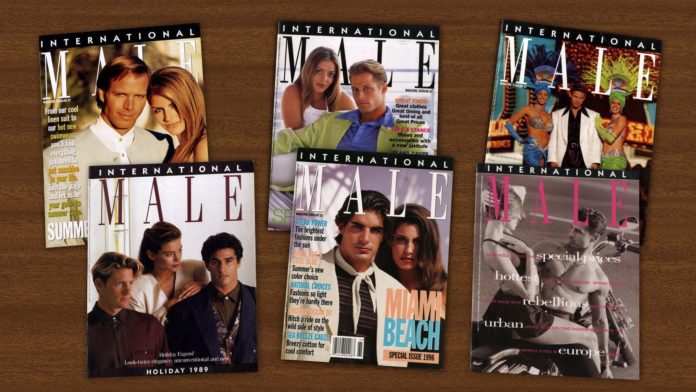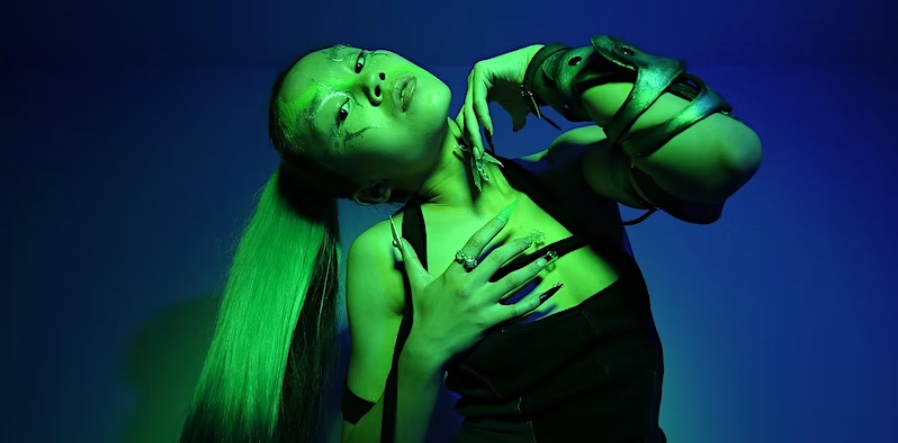It was an unlikely story, unfolding in an unlikely place. International Male was a magazine-style, mail-order catalog that reached its zenith in the ‘80s and early ‘90s and was filled with muscled-up models and improbable fashions that earned it a cult following, especially among gay men. The catalog became a kind of cultural touchstone for a generation who wouldn’t have internet connections or smartphones until much later.
But how it began and where are the parts of the story that, well, make for a good movie.
Such is the case with All Man: The International Male Story, a new documentary that had its world premiere on June 12 at the Tribeca Film Festival in New York.
/cloudfront-us-east-1.images.arcpublishing.com/dmn/WAB7YKWS4NEB3N32UCE7TMJHBA.jpg)
Its connection to Dallas comes in the person of Maureen Dalton Wolfe. Now based in Texas as a photographer’s agent — she’s married to Dallas rock ‘n’ roller Kinley Wolfe — she worked as an art director for the catalog for five years in the 1980s, when it managed to go viral, long before “viral” became the go-to expression for widespread exposure.
Wolfe’s first impressions fell a tad short of favorable. She was happy to land the job but not so happy to learn that instead of working in New York or Paris, her career would be diverted to … San Diego.
In other words, not necessarily the expected location for a cutting-edge men’s fashion catalog.
But because it became an endearing part of Wolfe’s life (her initial impressions of San Diego notwithstanding), she remembers it with nothing but fondness and is thrilled that its strange but successful history is now enshrined in a movie — in which she appears three different times.
International Male was, she says, “started by a gay man named [Eugene Raymond] Burkard, who was in the military and kind of a closeted gay guy, who had discovered other people like him.” He reinvented the workaday athletic supporter as high-fashion underwear and swimwear.
/cloudfront-us-east-1.images.arcpublishing.com/dmn/KZN7PG5RTVALXBDUUJMJHGWDO4.jpg)
So, to help market his creations, “he launched this mail order catalog and started advertising locally in San Diego.” What’s even more incredible about the success of the catalog was when it managed to flourish.
By its apex, the catalog had reached a stunning circulation of more than 3 million and had notched $120 million in revenue. Sadly, in addition to all that, it managed to do so during a catastrophe — the AIDS epidemic.
The filmmakers landed an interview with Burkard before he died in December 2020. He was 90. His obituary credits him with being a pioneer in San Diego’s LGBTQ community and as being able to sing like Frank Sinatra.
When Burkard established a foothold, he did so, Wolfe says, by setting up both a corporate office and a store — which is where the woman from Dallas came in.
/cloudfront-us-east-1.images.arcpublishing.com/dmn/L7QH6AOBY5B3VJK65CJG4QZPGQ.jpg)
She describes its apparel as being “so over the top” that the customers of International Male were either gay men or women who couldn’t wait to get their hands on merchandise that might make their husbands or boyfriends “dress a little bit trendier.”
“I came in and started doing window displays in a store that was all gay men. I had worked on photo shoots in New York, so in San Diego, I felt like a misfit kid.” And, yes, at first, “I was miserable to be there. Utterly miserable. I wanted to be in New York or Paris, some big fashion capital.”
But at International Male, the team “adopted” her, making her feel “so loved and included,” going so far as to let her join them on outings to San Diego’s Black’s Beach, known widely for being a “nude” beach.
“They took me under their wing. Let me do things. Like these crazy displays I wanted to do. And it became for me such a fun place. It was almost like I was a little doll for them, like it was play time.”
/cloudfront-us-east-1.images.arcpublishing.com/dmn/ZH7HIKDHXZBXXFD5XYZEO52OSI.jpg)
She went from doing window displays to being art director and stylist. She worked for the original owners for a year, but then the company was sold to a large, East Coast-based catalog company. And sadly, things soon began to change.
“They started firing people left and right — they felt the company was too gay.”
What she remembers most is how, when the catalog debuted, “it meant so much to the gay community. Young gay men identified with it. The catalog would show up in the mail and they would realize, ‘Oh, I’m not alone.’”
/cloudfront-us-east-1.images.arcpublishing.com/dmn/S23IIR6L7BHLHI7OTDO4AQK4DA.jpg)
And now, almost 40 years after Wolfe made her mark at International Male, the catalog is enjoying a renaissance as the focal point of a buzzy new movie. Deadline praises the film for showcasing an era of screamingly flamboyant threads, “from wild-patterned shirts and mesh tank tops to the bikini-est of bikini underwear, all modeled by chiseled men held up as paragons of masculinity.”
Wolfe says the catalog became so popular, young gay men began hiding it in closets the same way straight male teenagers had stored stacks of Playboy in their closets for years.
“The filmmakers thought they would do this little, short film,” Wolfe says, “but then they started interviewing people. And it grew from there.”
It’s not surprising. If anything, recent events are reminding gay people that gay rights were not easily achieved. In the wake of the U.S. Supreme Court overturning the landmark abortion rights case, Roe v. Wade, on June 24, Justice Clarence Thomas suggested in his concurring opinion that the court should reconsider rulings that protect contraception, same-sex relationships and same-sex marriage.
Perhaps writer Liza Domnitz said it best, in her review of International Male on Tribeca’s website:
“While the documentary is tongue in cheek, its analysis of postwar American masculinity, the devastating effects of the AIDS crisis, and fashion’s power to bridge the cultural barriers between gay and straight men … is wholly sincere.”








